When I was about 13, after getting over paleontology (realizing that I might die without getting to find/name my own breed of dinosaur), I decided I wanted to get into games development.
I wanted to do the visuals for games, but did not have a huge amount of experience with drawing. So, I bought a notepad and started doodling.
This has continued with consistency for years, making sure to carry some paper around with me and a trusty pen. In that time, my interest has shifted from the purely visual side of games to developing them. On what I assume is near enough the 10th anniversary since I started, I’m passing the torch to you. Here’s a bunch of examples of times where having a sketchbook was useful and some suggestions for reasons to carry one around with you. The topic will mosey between the two main uses I have for mine - doodle space for developing myself artistically and a place to plan out the design for my games.

Back up for the brain.
It’s surprisingly hard to keep ideas preserved in your brain. There are a million things happening at once for you to keep track of and often solutions or designs can fall through the cracks. Having somewhere to offload this not only frees your mind to think of new things, but allows you to expand an abstract idea and add depth. To add, you might jot down an idea now and not have time/use for it, yet revisit it at a later date. Many game ideas came far earlier than my ability to program and if I’d not documented them they might have been lost to time.

Life gives the best ideas for games.
Whilst the medium of video games has obviously influenced my work, most ideas for projects come from experiences outside of games and away from the screen. Narcissus came from watching my brother crossing stepping stones, CHIGUN was conceived on a coachride through Austria, Deathlection was from a dream sleeping on a living room floor and many more. With all of these examples I had a notepad to hand.

With Deathlection, I woke up in the middle of the night, scribbled down this delirious sketch then dozed back off

Makes use of dead time
In my first year of University, I lived quite a distance out of the centre. Each day, I would ride a shuttle bus for 30 minutes to get into town. Rather than texting or staring into space, I spent the time working in my sketchbook. In particular I enjoyed drawing trees as there was such a variety along the route. There were even days where I would loop around the circuit to get more time. Another enjoyable exercise I often do is draw people on platforms waiting for the train. You usually have about 10-15 seconds to flesh out the features before the train leaves/they notice you drawing them. It’s an easy enough calculation to do: on a 30 minute commute twice a day you could rack up 5 hours of practice/extra work time a week. How much can you cram in?

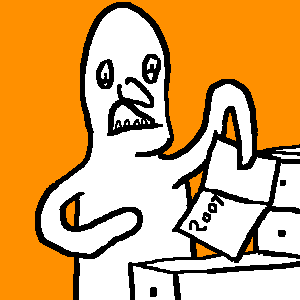
Look how far you’ve come…
It’s very nice to look back on the work you did at the beginning and think… “God my drawings were terrible!” - Badly proportioned soldiers looking more terrifying than the monsters they were up against, drawn in thick black felt tip pen (See below). Comparing that to current work feels great (and makes the years of simpler drawings worth it). It is always nice as well to look at the previous styles you’ve gone through and blend them with your updated skill set. There’s a group I’ve discovered on the Internet a while back called “Level Up!” which is all about comparing your most recent work to that of the past to show how you’ve progressed. Something I didn’t do from that start that I wish I had - DATE YOUR WORK (It’s good to know the exact date something came into existence).
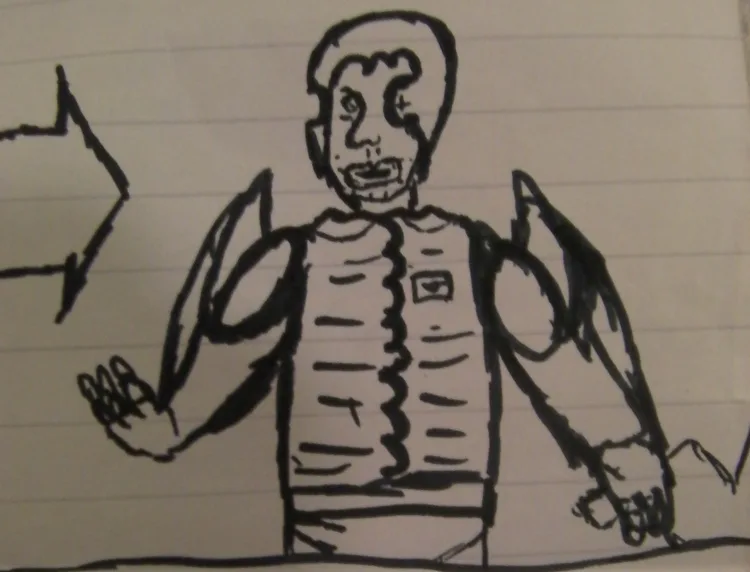
One of first drawings of LEECH, 2005 (THOSE LIPS).
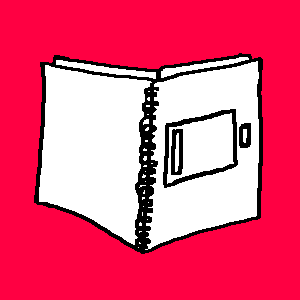
Won’t let you down.
Unlike their electric counterparts, notepads are dirt cheap to buy. For me a sketchbook for a quid and a ballpoint is usually enough, but all depends what your budget is and what you’re comfortable working in. Depending on the place you live, it’s also safer wielding a notepad than a tablet or computer in public as notepads only hold value to their owner. Having said that, culture is shifting and as technology grows cheaper, more people are using their computers elsewhere. Mind you, even as I’m writing this, I’m having to hurry as the battery is getting dangerously low on my tablet. On a notepad, this isn’t an issue…
Some extra suggestions

Get a book that’s easy to carry
A5 for me has turned out to be the optimal size - A4 is too cumbersome to carry whilst anything smaller gets lost and is too fiddly to draw in (though I do have freakish man hands). This allows me to pop it in a coat pocket, carry it, throw it in a rucksack and keep it to hand.

Broaden your knowledge of subject matter - Draw everything!
The first few years of drawing were focused around a sci-fi horror called LEECH. Whilst this was the game that kindled my interest with games development, it had me in a particular rut of drawing for a good while (space suits, guns, mutants, gratuitous amounts of blood). Try to keep drawing new and usual things that are outside of the area you’re used to (as you never know where it’ll be useful). Having your sketchbook with you will mean you can draw anything and everything you come across. A great example - this week I was in Sweden and I used the 9 hour travel time up north to teach myself how to draw mountains with trees on at varying sizes and distance, or this beautiful example of me drawing a motorcyclist and their partner attempting to kiss through a helmet on a station platform.

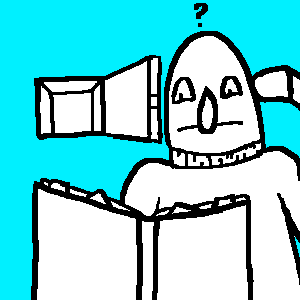
Back up your sketchbooks
Things can go wrong and books going missing or getting wrecked is not great. When I went camping in the depth of last winter, my tent flooded and my sketchbook came away from it a sopping mess. Thankfully I managed to dry the book and fix the spine with a bunch of tape when I returned home. The first thing when it was back in working order was back up all of the pages with a scanner.


When in doubt, draw more.
It sounds too simple to be the case, but when many people ask me about the way to learn to draw - my reply is to draw and keep doing it. As my secondary school art teacher always used to say “Practice makes almost average”.

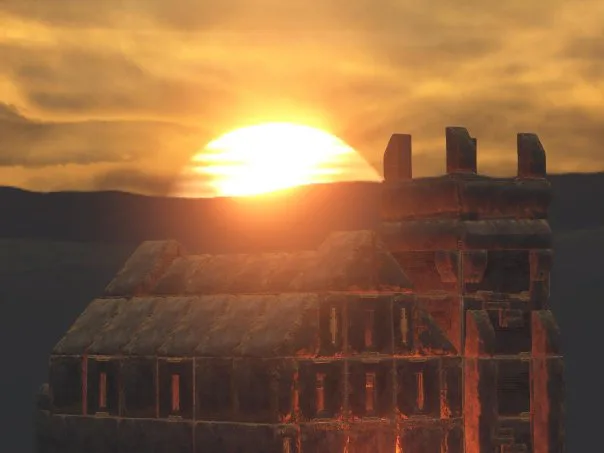


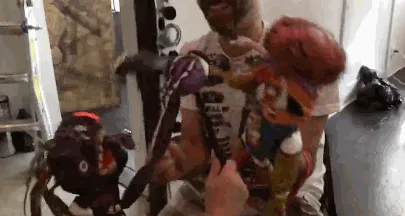
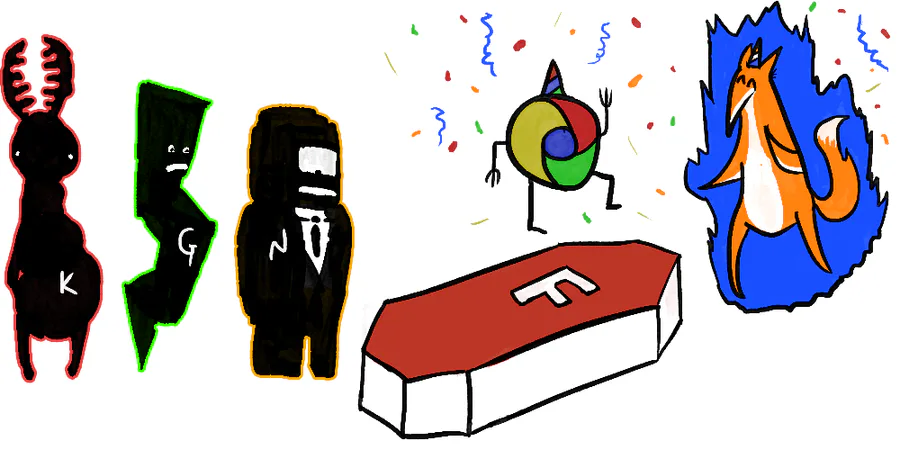
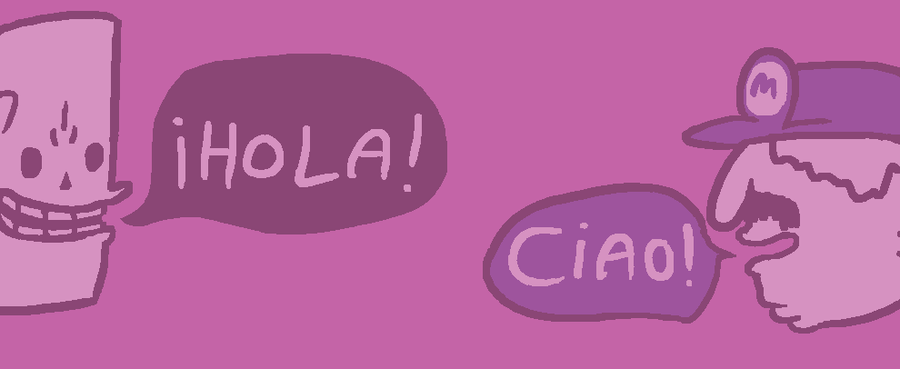
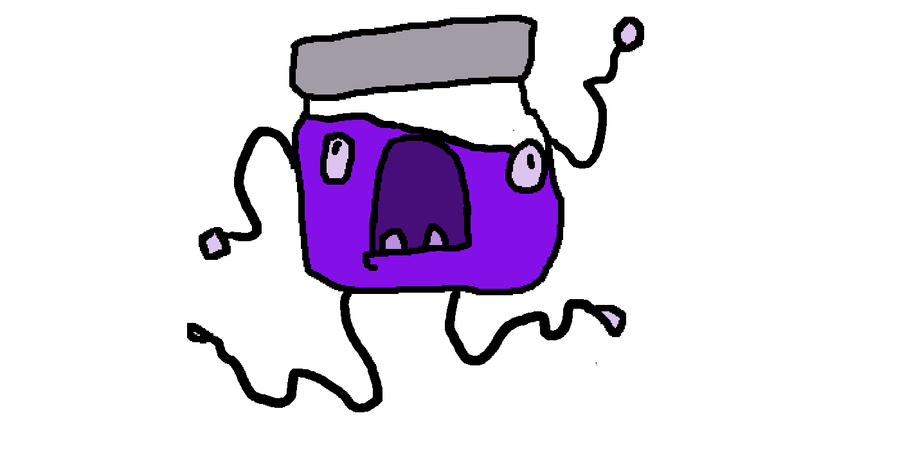
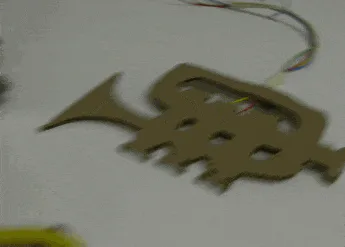
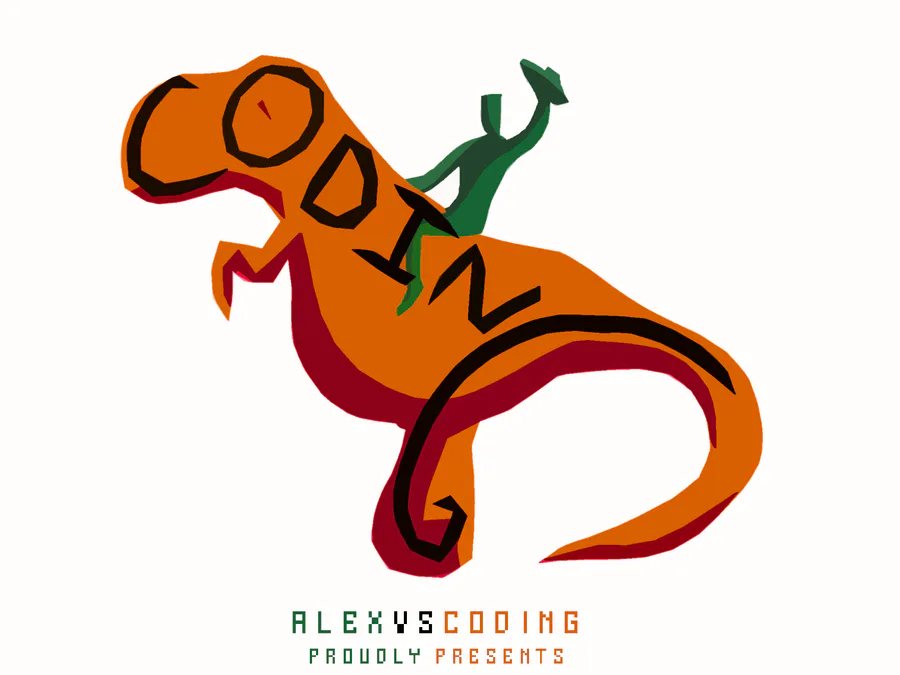
15 comments